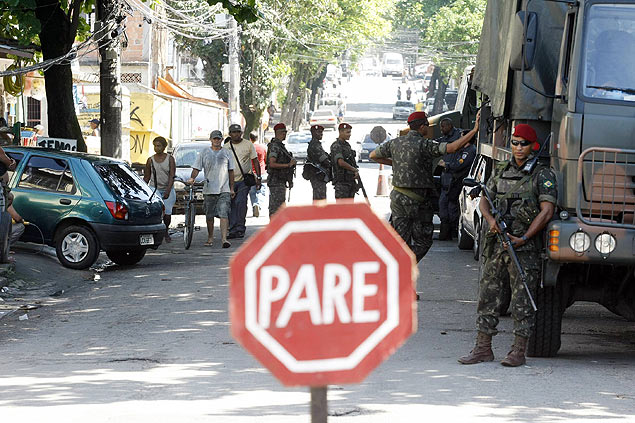Latest Photo Galleries
Brazilian Markets
12h03 Bovespa |
-0,14% | 129.028 |
16h43 Gold |
0,00% | 117 |
12h17 Dollar |
+0,39% | 5,0873 |
16h30 Euro |
+0,49% | 2,65250 |
ADVERTISING
Dilma Considers Using Armed Forces Against Vandalism at World Cup
02/20/2014 - 08h30
Advertising
REYNALDO TUROLLO JR.
PATRÍCIA BRITTO
FROM SÃO PAULO
FELIPE COUTINHO
FROM BRASÍLIA
President Dilma Roussef announced on Wednesday that the armed forces may be called on to deal with violent protests during the World Cup beginning in June.
"The Federal Police, National Forces, Transit Police, basically all of the federal government organs are ready to act within their areas of competence. If and when it is necessary, we will mobilize them, including the Armed Forces," said Dilma in an interview with radios from the region of Alagoas, when questioned about acts of vandalism.
The declaration has come following recent violent protests which led to the death of Santiago Andrade, a cameraman from the Band network who was hit by a firework thrown by demonstrators in Rio on February 6.
The Ministry of Defense informed that 21 thousand military troops (including army, navy and aeronautical) are on guard as a "contingency force". This contingency may, among other things, act in protests.
They are to be mobilized in case state police are not able to contain the demonstrations.
During the operation state authorities must "transfer operational control from security authorities" to the Armed Forces.
In addition to the 21 thousand members of the military posted across the 12 cities hosting the World Cup as well as in Alagoas, Espirito Santo and Sergipe, another 36 thousand men will undertake regular Armed Forces tasks such as controlling the aerospace and security in ports and airports.
357 thousand men are currently active in the Armed Forces.
"We will be very well prepared to guarantee the safety of all fans, tourists, teams and Heads of State visiting us. I am sure it will be the Cups of all Cups," said Dilma.
Although mobilizing the troops against protests will be an exclusively presidential decision, it will depend on a mutual agreement between federal and state governments, who are responsible for public security.
On February 3 the Ministry of Defense published a new version of the Manual for Guaranteeing Law and Order which outlines the rules for mobilizing troops in emergency situations.
The original text published in December caused controversy as it classified civil society organizations as "opposing forces".
Activities led by the Armed Forces are known as Operations for the Guarantee of Law and Order. They exist to "preserver order and provide security to people and heritage in situations when the tools provided for this run out."
As mobilizing the military requires bureaucratic procedures that can take days, this is no use for containing a protest which has gone out of control.
That is why intelligence work will be necessary to prevent risks before violence occurs, so that agreements can be signed.
Translated by MILLI LEGRAIN
Read the article in the original language
| Joel Silva/Folhapress | ||
 |
||
| President Roussef announced that the armed forces may be called on to deal with violent protests during the World Cup |



